Nan He
SoftDedup: an Efficient Data Reweighting Method for Speeding Up Language Model Pre-training
Jul 09, 2024
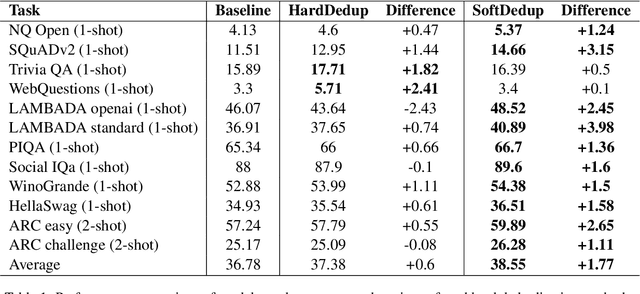
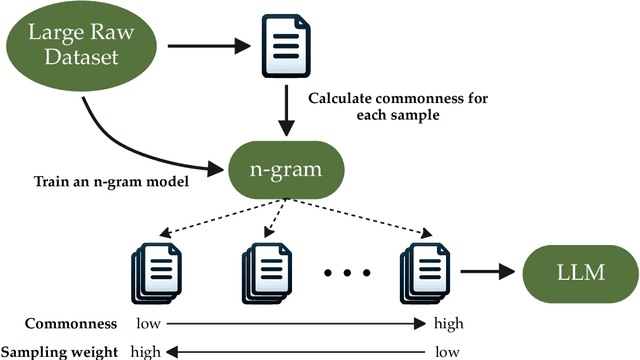
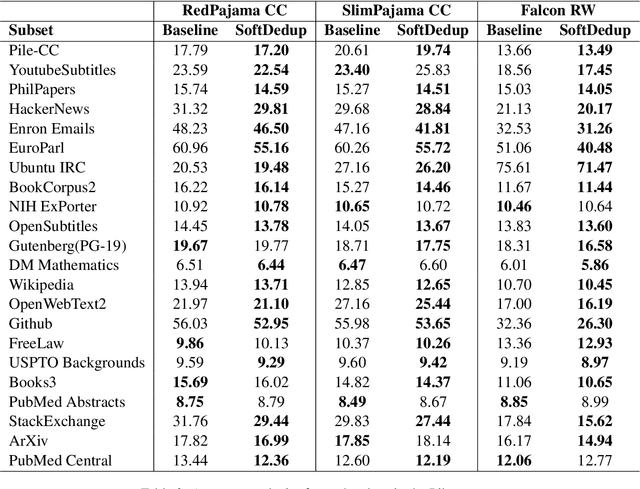
Abstract:The effectiveness of large language models (LLMs) is often hindered by duplicated data in their extensive pre-training datasets. Current approaches primarily focus on detecting and removing duplicates, which risks the loss of valuable information and neglects the varying degrees of duplication. To address this, we propose a soft deduplication method that maintains dataset integrity while selectively reducing the sampling weight of data with high commonness. Central to our approach is the concept of "data commonness", a metric we introduce to quantify the degree of duplication by measuring the occurrence probabilities of samples using an n-gram model. Empirical analysis shows that this method significantly improves training efficiency, achieving comparable perplexity scores with at least a 26% reduction in required training steps. Additionally, it enhances average few-shot downstream accuracy by 1.77% when trained for an equivalent duration. Importantly, this approach consistently improves performance, even on rigorously deduplicated datasets, indicating its potential to complement existing methods and become a standard pre-training process for LLMs.
TeacherLM: Teaching to Fish Rather Than Giving the Fish, Language Modeling Likewise
Oct 31, 2023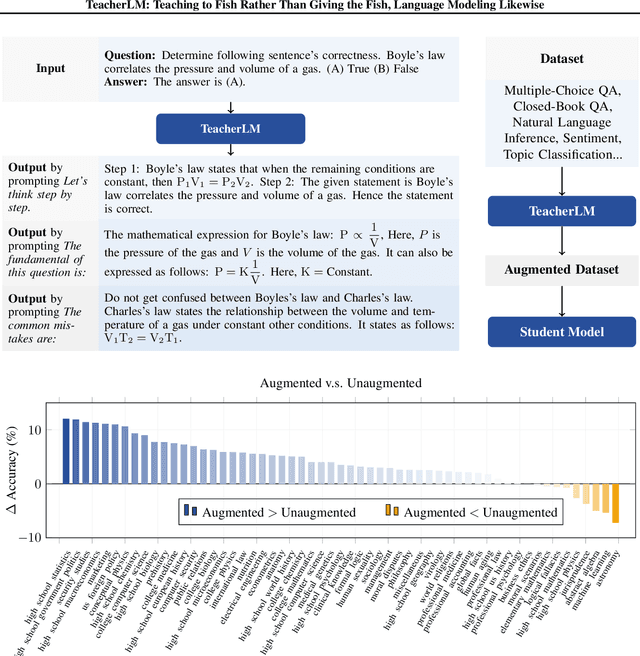

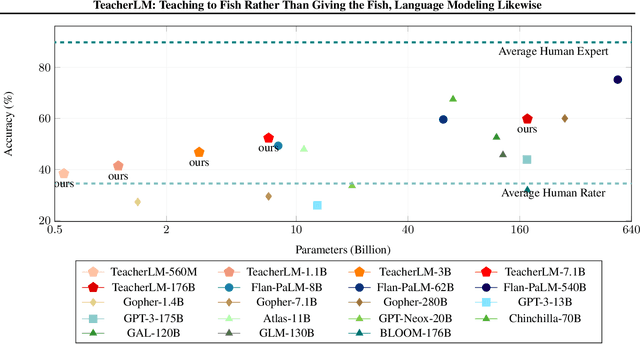

Abstract:Large Language Models (LLMs) exhibit impressive reasoning and data augmentation capabilities in various NLP tasks. However, what about small models? In this work, we propose TeacherLM-7.1B, capable of annotating relevant fundamentals, chain of thought, and common mistakes for most NLP samples, which makes annotation more than just an answer, thus allowing other models to learn "why" instead of just "what". The TeacherLM-7.1B model achieved a zero-shot score of 52.3 on MMLU, surpassing most models with over 100B parameters. Even more remarkable is its data augmentation ability. Based on TeacherLM-7.1B, we augmented 58 NLP datasets and taught various student models with different parameters from OPT and BLOOM series in a multi-task setting. The experimental results indicate that the data augmentation provided by TeacherLM has brought significant benefits. We will release the TeacherLM series of models and augmented datasets as open-source.
 Add to Chrome
Add to Chrome Add to Firefox
Add to Firefox Add to Edge
Add to Edge